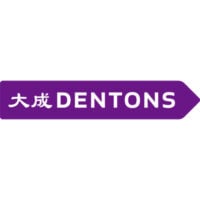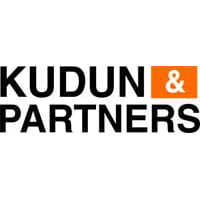
China 2019

General counsel Greater China | Danone





Phoebe Tang
General counsel Greater China | Danone
General Counsel | Danone
We won important lawsuits to protect Danone’s key brands, including Aptamil, Evian and Karicare. Danone owns numerous famous brands worldwide, which are always targets of trademark infringements. In the last couple of years, Danone faced lots of serious brand infringement cases, almost including all Danone brands in China. I led the team to win all cross-category infringement lawsuits. In most cases, infringers are very influential local companies and even supported by local governments. Winning those cases not only prevented dilution of brand equity, gained a large number of compensation and stopped infringement, but also built a strong foundation for those brands to be recognised as famous brands in China.
In-house lawyers should have a solid understanding of business trends, understand industry and business models quickly meanwhile be sensitive to macroeconomic trends and economic policies. In addition, beyond legal expertise, equip yourself with multifunctional basic knowledge, including but not limited to finance, supply chain, marketing and ecommerce.
We should always be ready for regulatory changes and be able to drive these changes somehow. China is one of the most fasting moving economies [in the world], having one of the most VUCA (volatile, uncertain, complex and ambiguous) regulatory environments in the world. A good counsel should embrace changes of laws and regulations instead of being frustrated or agitated. More importantly, in-house counsel should be able to predict legislation trends in a relevant industry and further make impact on the legal and regulatory framework. Finally, successful in-house lawyers should be able to smoothly manage internal and external stakeholders. A successful in-house counsel is supposed to have a big impact on business decisions and play an irreplaceable role in business management. Internally, the counsel should build strong credit in front of the business and gain full trust from business partners. Externally, you should have courage to lead industry discussion and drive the industry’s position.
In-house legal will play a more important role as a business decision-maker, not just an advisor. As a matter of fact, nowadays in-house counsel tend to be part of the business, more than a service provider. Moreover, the career path of in-house legal is getting broader in the business world. Recently, more in-house counsel are moving to business functions, such as procurement, sales, and even general manager. In-house teams are getting stronger and more professional compared with external counsel, [and] more in-house departments are setting up teams with strong functional expertise. The size of in-house teams is also getting bigger. This means lots of companies realise the contribution and value of in-house counsel and would like to invest in them. There will be less reliance on external legal services – this tendency isn’t only driven by the reason stated above and cost control, but also by higher business efficiency. Sometimes, using external services can hardly catch up with the fast moving business decision-making process. More in-house counsel think briefing business backgrounds to external service providers somehow is quite cost-consuming.
Cross border ecommerce (CBE) is one of the most important business channels for the Danone Group. Danone China is the first one exploring CBE opportunities in the industry. However, the relevant policies and regulations have been uncertain in the last few years. In fact, CBE development is moving so fast that the legislation can hardly catch up. Therefore, lots of CBE activities fell into a grey area. Over the last couple of years, our team first actively worked with big ecommerce operators in China to advocate CBE. For next steps, we will continue providing accurate assessment to the business on legislation movement and advising feasible and compliant business models. In parallel, we will keep leading industry discussion, sharing best practice and unifying the industry position, providing market research, regulation enforcement data and industry feedbacks to relevant authorities.
FOCUS ON… CBE: new opportunities and challenges under a VUCA environment. CBE is becoming part of the Chinese consumer’s daily life. The demand for better, safer and cheaper products grow at the same time as the purchasing power of Chinese people. More and more foreign companies regard CBE as a first great step to enter the Chinese market. Without doubt, CBE plays an increasingly important role in route-to-market, especially for highly regulated industries. Business development always outgrows the regulatory framework in the ecommerce sector. This brings big challenges to in-house counsel: how can we provide feasible and risk-control solutions to fast-moving business models without a comprehensive and clear legislative guidance? Although from last November, the authorities announced several regulations and policies which set forth some guidelines in terms of market access, qualifications, tax, business models, data transactions and safety control, there are still lots of fundamental questions to be addressed. For instance, what’s the relation between CBE and general trading? In a long run, do general trading and CBE always follow different legal requirements? How to control food safety risks for special and sensitive categories, like infant food, health food and cosmetics, especially anti-counterfeiting? CBE is a very hot topic in the trading and operations areas, however, the entire legal society doesn’t pay enough attention on it, which is a pity. In-house counsel are supposed to be much closer to the business with stronger business acumen than outside counsel. Therefore, in-house counsel should always be sensitive to cutting-edge business models and able to catch business trends in a fast-moving environment.